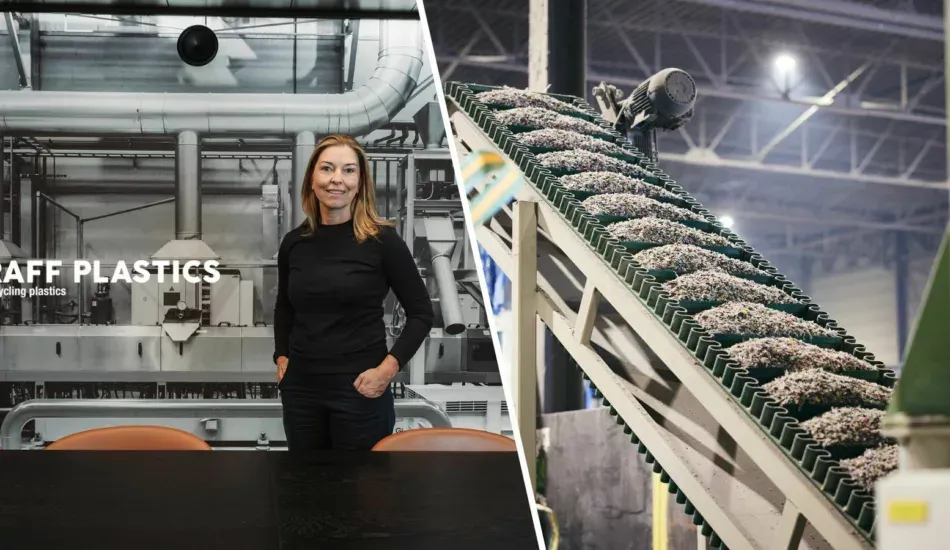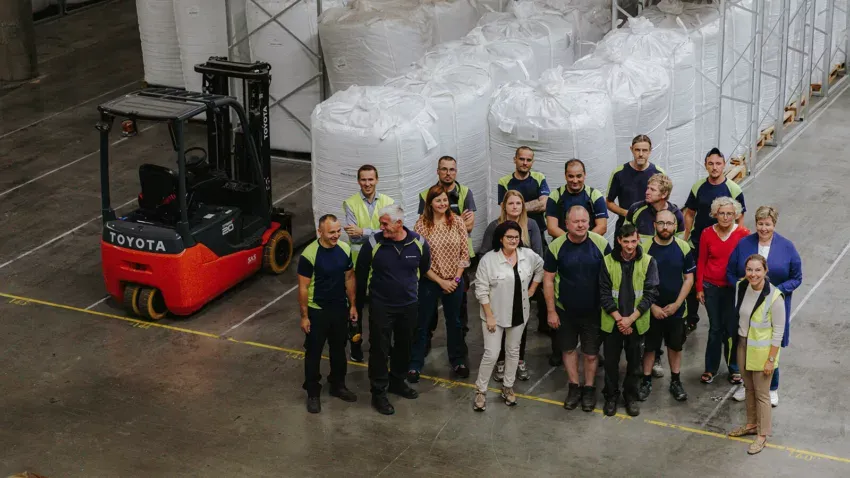In the future circular economy, all waste is raw material. Nice words, but in practice, recycled plastic in the Netherlands is still too often labeled as waste, so it cannot be used in the plastics industry. That hinders the transition to a green chemistry. What can the Netherlands learn from Flanders? In part 1 of this series, Caroline Van der Perre of RAFF Plastics explains how it works for its southern neighbors.

In the Netherlands, recycling companies often get lost in a forest of bureaucracy and rules to apply for a so-called 'end-of-waste status'. They need this to be allowed to sell recyclate as raw material. They must be able to prove for themselves that their waste can be processed into safe products. But even if they get such a status, it has no legal basis and offers no certainty.
Another but not easier
In Flanders, something like this is called a "resource declaration. "It is different in Flanders, but it is certainly not easier to apply for a resource declaration here," says Caroline Van der Perre, director and co-owner of the fast-growing Flemish recycling company RAFF Plastics and board member of Denuo, the Belgian federation of the waste and recycling sector. According to her, it's really not like you can request a declaration with a few clicks on a website.
Flanders are stricter
.RAFF Plastics processes plastic waste into pellets that customers use to make laundry baskets, buckets or flower pots. It also collects masks, bags and hoses from hospitals, which after processing are made into new wall coverings for hospitals. The company applied for its first raw material declaration only after an environmental audit. This revealed that the grinding material the company was transporting, small flakes of plastic, had been transported under the wrong code and actually fell under waste. RAFF Plastics received an official report and had to apply for a raw materials certificate from the Public Waste Agency of Flanders (OVAM). That is the central counter in Flanders for sustainable waste and materials management. There she got stuck. "Everything starts with the question: what is waste? That needs to be more clearly defined at the European level," says Van der Perre. "Now in that assessment, the legislation of the strictest country counts. Flanders is stricter than the Netherlands. That's why it's not easier here."

Dutch status does not count in Belgium
Her company buys plastic waste from refrigerators from the Dutch recycling company Coolrec, part of Renewi. That has been granted end-of-waste status for this purpose. "We turn that into granules through mechanical recycling, make it cleaner, don't add anything, but we can't automatically use this grinding material as a raw material. This is because it is not the case that the end-of-waste status from the Netherlands also counts in Belgium," says Van der Perre. For Coolrec's polystyrene granules, RAFF Plastics eventually obtained a raw material declaration. For this, it had to have new tests done. Now new plastic can be made from these granules, but it may not be used for food packaging.
Search and learning process
.The company now has eight streams with a resource statement, whose samples it always has the same agency test. "In the end, it took us two years to do this. This was really a search for us and a learning process for OVAM," she says. "In the beginning, our cooperation was difficult because OVAM did not yet have much experience with raw material declarations for plastics and we did not really know how to approach this either. During an OVAM company visit to RAFF Plastics, we were able to show them our production, waste streams and laboratories. This strengthened our cooperation."
Campaign for recycling
.In Belgium, recyclate is given raw material status if it can be used immediately to make end products. In addition to raw material declarations, RAFF Plastics has a waste permit. Without such a permit, a recycling company cannot take in waste for processing into recyclate. It also measures all batches of waste coming in for contamination itself. The company is now participating in the OVAM-campaign "Flanders Recycling Hub," to highlight the high-quality recycling sector. In it, RAFF Plastics shares its expertise with the market and with fellow companies.